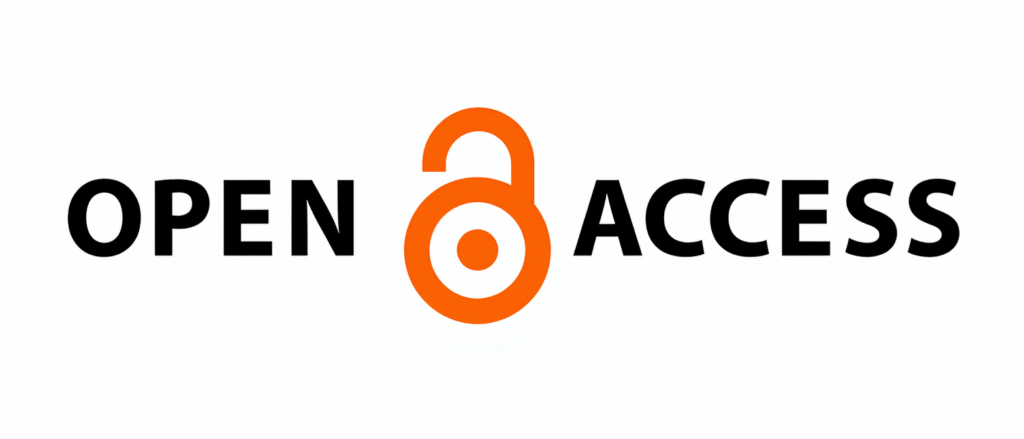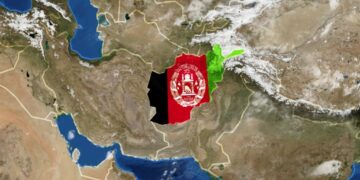CASE STUDY
Sadaf Taimur
Goodwill Industries, Ontario, Canada
Bakhtawar Ahmad
University of the Punjab
PLAIN-LANGUAGE SUMMARY
The “Sangam” initiative is a youth festival in South Asia designed to address climate change and related conflicts by bridging traditional wisdom with scientific understanding. It tackles the marginalization of youth voices in climate decisions, despite South Asia’s 300 million young people being highly vulnerable and crucial for a sustainable future. Pakistan, a country acutely threatened by climate change with a large, engaged youth population, was chosen as the pilot location.
The festival brought together 40 young participants (15-25, equal gender balance) for dynamic workshops and storytelling. These sessions blended local experiences and traditional knowledge with scientific insights, fostering a powerful understanding and generating solutions.
The results were incredibly promising:
Climate-Conflict Link Understood
Participants grasped how climate change can lead to conflict.
Motivated to Share Knowledge
An inspiring percentage were motivated to share their newfound knowledge.
Committed to Spreading Awareness
Nearly all committed to spreading what they learned in their communities.
Pledged to Engage Many
Young leaders pledged to share knowledge with 10 to 50 individuals each.
Beyond understanding, participants developed practical action plans and policy recommendations. Sangam offers a powerful, replicable model for youth-led climate action across South Asia, empowering voices and building a resilient future.
WATCH A SUMMARY OF THE ARTICLE
LISTEN TO THE PODCAST
Abstract
This article explores the impact of “Sangam – The Festival of Confluence,” a youth-centered initiative in South Asia that bridges local and scientific knowledge to tackle climate change and climate-induced resource based and intergroup conflicts. The study employs a case study approach to explore the festival’s outcomes, focusing on dialogue, cooperation, and sustainable actions. The evaluation framework assesses knowledge exchange, grassroots dissemination intentions, and policy and action engagement. Data was collected via a post-festival survey, analyzed for internal consistency using Cronbach’s Alpha for key constructs —(a) knowledge and perspective exchange; (b) intentions to disseminate; and (c) formulation of action plans and policy recommendations – and supplemented by descriptive statistics and Pearson correlation analysis. Results show that the festival significantly enhanced participants’ understanding of climate change and its associated conflicts. A majority expressed strong intent to disseminate the knowledge and perspectives gained, with 95% reporting motivation to share their insights. Furthermore, 90% of participants developed action plans and policy recommendations, indicating a high level of engagement. The correlation between knowledge and perspective exchange about climate induced conflicts, the perceived urgency of climate action, and understanding the importance of engagement in climate action highlights the festival’s role in fostering climate resilience and peacebuilding. This article emphasizes the potential of youth-led approaches to amplify voices from the Global South in promoting climate resilience, peacebuilding, and systemic change.

Keywords: Youth-led Climate Action, Knowledge Exchange for Sustainability, Climate Resilience, South Asia, Participatory Research, and Peacebuilding
Introduction
In an increasingly globalized world, climate change represents a crisis that transcends national boundaries, threatening ecosystems, livelihoods, and global stability. Its repercussions are particularly pronounced in vulnerable regions like South Asia, where geopolitical tensions, resource scarcity, and socio-economic inequalities converge (Klare, 2020; Vinke et al., 2017). The South Asian region, encompassing Afghanistan, Bangladesh, Bhutan, India, Nepal, Pakistan, Sri Lanka, and the Maldives, has historically grappled with various forms of conflict. These include territorial disputes, civil wars, and geopolitical tensions, such as the enduring conflict between India and Pakistan, which claimed 81 civilian lives and displaced over 70,000 people in 2017 alone (UNICEF, 2018). Concurrently, sustainability challenges like climate change, natural resource competition, and poverty exacerbate these conflicts. Climate-induced water scarcity and resource shortages, for instance, have the potential to transform existing tensions into prolonged violence, as evidenced in contexts like Darfur, Sudan (UNEP, 2007).
Climate stress is increasingly acknowledged in South Asian policy frameworks as a driver of impacts such as livelihood insecurity, water scarcity, resource competition, and climate-induced displacement. India’s National Action Plan on Climate Change (NAPCC) (2008) and Pakistan’s Climate Change Policy (2021) reference these stressors. However, there is no comprehensive regional framework that explicitly links climate stress to conflict and security in a sustained, actionable, and coordinated manner. Addressing the nexus between climate change and regional conflicts is not only a pressing issue for South Asia but also a critical component of global peacebuilding and sustainability.
A Youth-Centric Crisis
In South Asia, where nearly half of the population is under 24 years of age, the implications of climate change are particularly severe. This demographic, representing the largest youth population globally until 2024 (UNICEF, 2019), is disproportionately affected by climate change (Gasparri, 2022).
The Power of Youth Voices
Young people tend to perceive climate change as an urgent crisis, driving their dedication to innovative and forward-looking solutions (Mortelliti, 2023). They have been aptly described as the “new ambassadors of scientific consensus and climate mitigation” (Eide and Kunelius, 2021).
In this context, meaningful youth participation emerges as both a prerequisite for effective climate action and a cornerstone of ambitious and equitable outcomes. Moreover, equitable and impactful climate action fosters an environment that not only addresses systemic challenges but also enhances youth well-being (Ingaruca, 2022).
South Asia’s 300 million young people are uniquely positioned to lead initiatives addressing climate change and mitigating regional conflicts. As rights-bearing citizens, they have a legitimate claim to participate in actions and decision-making processes that shape their future. However, despite their critical role in achieving the Sustainable Development Goals (SDGs) and fostering positive youth development, young people often face systemic marginalization. According to the United Nations Secretary-General’s policy brief, youth remain “almost invisible” in public policy and decision making processes due to barriers such as exclusion, limited capacities, and restricted accessibility (UN, 2022). Therefore, young people’s potential can only be realized if they are provided with robust platforms and equipped with science-based knowledge to address these challenges effectively.
In South Asia, youth-led climate initiatives like the All-India Youth Climate Network (AIYCN) and the Nepalese Youth Climate Network (NYCN) have mobilized young people through awareness campaigns, reforestation efforts, and policy advocacy. However, there is a need for initiatives with a pioneering approach that bridge the gap between traditional knowledge and modern science while explicitly connecting climate stresses with climate-induced conflicts. Such integrative models can empower youth to not only lead climate action but also address the socio-political dimensions of environmental challenges—contributing to resilience, peacebuilding, and sustainable development rooted in local contexts.
Sangam – The Festival of Confluence: Empowering Youth for Climate Action
Sangam – The Festival of Confluence is a community-based participatory initiative empowering South Asian youth to address climate change and conflicts. What sets Sangam apart is its integration of traditional knowledge- gathered through consultations with young representatives from across the region/locality – with scientific insights, fostering a holistic approach to climate resilience. While many existing youth initiatives focus on awareness, advocacy, or specific actions like tree planting and clean-ups, Sangam explicitly links climate change with conflict resolution and peacebuilding, addressing the social tensions intensified by environmental stress. Through cultural diplomacy—employing storytelling, art, and rituals—it makes climate action emotionally resonant and rooted in local identities. Crucially, Sangam emphasizes bottom-up policy engagement through real-time interactions with policymakers, enabling youth to co-create actionable plans and policy recommendations that reflect on-the-ground realities. Emphasizing local solutions, Sangam aligns with global sustainability principles, leveraging cultural practices for sustainable resource management and conflict resolution. As highlighted by MacKay et al. (2020), localized initiatives rooted in traditional youth knowledge gain stronger community buy-in and lasting impact.
Build Capacity
Build youth capacity to address the climate-conflict nexus.
Facilitate Exchange
Facilitate perspective exchange across diverse backgrounds.
Promote Dissemination
Promote the dissemination of insights gained to encourage action-oriented policy dialogues for sustainable peace and regional cooperation.
Conceptualization & Case Selection
Sangam – The Festival of Confluence, conceived in 2022 by nine Salzburg Global fellows, emerged from online workshops, an in-person seminar in Salzburg, and a project accelerator in Nepal. Rooted in the Asia Peace Innovators Forum, the team leveraged their South Asian heritage, experience, and regional expertise to design this impactful initiative. (See more details here: https://www.salzburgglobal.org/multi-year-series/asia-peace-innovators-forum/pageId/11370 ) Additionally, the Salzburg Global has created a video introducing the project, which can be accessed here:
Figure 1: A snapshot from the youtube video introducing the project (Video Credit: Salzburg Global)
Following the initial conceptualization, Pakistan was chosen as the pilot location due to its distinctive mix of vulnerabilities and opportunities, making it a vital testing ground for initiatives addressing climate change and climate-induced conflicts. As one of the most climate-vulnerable countries globally (Eckstein et al., 2021), Pakistan frequently experiences climate-induced disasters such as floods, droughts, and heatwaves, which compound existing socio-economic and geopolitical challenges. Moreover, Pakistan’s political instability presents significant obstacles to youth engagement, despite the country’s young population constituting approximately 30% of its total demographic – this population is projected to peak by 2039, with an annual growth rate of 0.9% (Javeed et al., 2022). Additionally, Pakistan’s geopolitical position, sharing borders with key South Asian nations, makes it an ideal setting for fostering cross-border dialogues and collaborations on regional challenges. As a critical case study (Flyvbjerg, 2011), the successful implementation of a pilot initiative in Pakistan holds the potential to serve as a replicable model for other South Asian countries facing similar socio economic conditions and climate challenges. Aligned with Flyvbjerg typology, if such interventions prove effective in Pakistan — a complex setting marked by political instability, demographic pressures, and geopolitical tensions — it strengthens the likelihood that similar approaches could succeed in other fragile, high-risk, or transitional contexts.
Collaboration with Youth General Assembly (YGA), Pakistan
Sangam – The Festival of Confluence was piloted in Pakistan with Young General Assembly (YGA) taking the lead in co-designing and organizing the event. YGA, an autonomous organization dedicated to policy development, equitable administration, and youth empowerment, engages young people across Pakistan in public discourse on social issues. Each year, YGA recruits around 1,000 members, supported by a network of 9,000 alumni and over 1,000 active members. (Young General Assembly, n.d.)
In July 2024, YGA consulted with key young leaders from across Pakistan to co-develop the festival’s agenda and activities (see figure 2). Held on 26th October 2024, Sangam centered around three key themes that were youth-driven—identified through consultations—and informed by research: (a) Understanding Climate-Induced Conflict, (b) Identifying Key Geographies and Commonalities in South Asia, and (c) Rethinking Future Actions and Policies. The festival brought together 40 youth participants, who engaged in workshops, consultations, and collaborative events designed to equip them with science-based knowledge and foster actionable conversations.

Figure 2: YGA young consultation session, held in July 2024, to gather insights from young people to co-develop the festival agenda and activities.
Emphasizing regional solidarity and cultural exchange, Sangam aimed to bridge gaps in youth participation and demonstrated how regional collaboration can effectively address shared environmental challenges like climate change. The festival highlighted the vital role of young people as agents of change, with participants actively engaging in creating solutions to climate-induced conflicts (see figure 3). For example, one youth-led group proposed a digital cross-border storytelling platform that documents lived experiences of climate migration across South Asia (from different countries), aiming to foster empathy, policy dialogue, and grassroots advocacy.

Figure 3: Pictures taken during the Sangam festival.
The in-person event was followed by online exchanges with youth organizations from Nepal and India. YGA participants shared their insights, policy recommendations, and action plans with counterparts in neighboring countries (see figure 4). This paper focuses on the impact of the in-person Sangam event in Pakistan, showcasing its role in nurturing young leaders who continue to create ripples through both local and regional initiatives. All participants belonged to the YGA network and were selected through a competitive process, during which they demonstrated their capacity and commitment to extend the festival’s impact within their communities and broader youth networks across South Asia. To ensure accountability and long-term impact, each participant signed a pledge form outlining how they would apply and disseminate their learning post-festival—whether through community engagement, advocacy, or project implementation. Their fulfillment of this pledge is integrated into their year-end performance evaluation as YGA members, providing a structured mechanism to track sustained outcomes beyond the event itself.

Figure 4: Pictures taken during one of the online exchange events with counterparts in
the neighboring countries.
PURPOSE
The purpose of this paper is to explore the impact of “Sangam – The Festival of Confluence” as a youth centered initiative that utilizes local knowledge integrated with scientific knowledge to capacitate young people to address climate change and climate-induced conflicts in South Asia. Following research question guided the study: Does “Sangam – The Festival of Confluence” contribute to capacitating and motivating young people to deal with climate change and climate-induced conflicts in South Asia?
METHODOLOGY
Sangam – The Festival of Confluence used a case study approach to assess its impact as a youth-centered initiative leveraging local knowledge for climate change mitigation and adaptation. The study explores the festival’s outcomes, focusing on fostering dialogue, cooperation, and sustainable actions to address climate-induced conflicts in South Asia.
Evaluation Framework
The evaluation framework for Sangam – The Festival of Confluence assessed its impact on knowledge exchange, grassroots dissemination intentions, and policy engagement. To measure the effectiveness of Knowledge & Perspective Exchange, it evaluated shifts in participants’ understanding of climate change and conflicts, as well as cross-regional interactions. For grassroots dissemination, the focus was on participants’ intentions to share insights through youth-led initiatives, community outreach, and regional representation. The framework also measured participants’ involvement in formulating policy recommendations and developing actionable plans. The indicators and items aligned with these objectives are outlined in the table 1 accompanying the framework, ensuring comprehensive evaluation of the festival’s impact.
Table 1: The evaluation framework for Sangam Festival, highlighting the indicators and items aligned with its objectives.
| Goal (Construct) | Indicator/s | Items | Cronbach’s-Alpha (scale reliability coefficient) |
|---|---|---|---|
| Awareness & Perspective Exchange |
|
|
0.76 |
| Intentions to Disseminate |
|
|
0.764 (Excluding the last item which is qualitative in nature) |
| Formulation of Policy Recommendations and Action Plans |
|
|
0.77 |
Furthermore, Table 2 represent the projected theory of change for the Sangam festival. This theory of change outlines the pathway through which the Sangam festival fosters youth-led climate action in Pakistan and in South Asia. It illustrates how participatory activities—such as workshops, storytelling, and indigenous/local knowledge sharing—lead to increased awareness, motivation to disseminate knowledge, and the formulation of action plans. These outcomes ultimately contribute to youth-driven policy influence, regional cooperation, long-term climate resilience and peace.
Table 2: Projected theory of change for Sangam – The Festival of Confluence
| Inputs/Activities | Immediate Outputs | Intermediate Outcomes | Long-term Impact |
|---|---|---|---|
|
|
|
|
Data Collection & Analysis
The evaluation of Sangam – The Festival of Confluence employed a post-festival survey to quantitatively assess program outcomes, ensuring alignment with its core objectives. The survey, developed using the evaluation framework, included 8 closed-ended items with a five-point Likert scale, 2 binary-scale questions, and one qualitative item. These questions captured participants’ learning, experiences, and intended actions (see table 1). A random subset of 28 participants completed the survey to test reliability and internal consistency before full deployment. This step provided an opportunity to address participant queries about the survey. Reliability was evaluated using Cronbach’s Alpha via STATA/SE 14.2, confirming consistency across constructs: (a) knowledge and perspective exchange (α = 0.76), (b) intentions to disseminate (α = 0.764), and (c) formulation of action plans and policy recommendations (α = 0.77). Each construct exceeded the 0.7 threshold, indicating reliable measurement of participant outcomes.
The final survey was administered via Google Forms, designed to be completed in 5-7 minutes to ensure accessibility and maximize response rates. While the short survey format likely limited the depth and nuance of the data collected, this trade-off was intentional and aligned with prioritizing real-world applicability, participant engagement, and actionable insights over only experimental rigor. All 40 participants responded, providing a comprehensive dataset. The data was exported to Excel and analyzed using statistical techniques, including response distribution and correlation analysis in STATA/SE 14.2. Visualizations such as graphs and charts highlighted key trends and patterns.
It is important to note that participants were selected using purposive sampling, with inclusion limited to individuals who attended and experienced the Sangam festival firsthand and that the survey questions were intentionally framed to capture experiences specific to the event’s content and activities. This approach ensured that responses reflected direct engagement with the event’s content and activities. While their contributions provide meaningful insights into the event’s impact, the findings may not be generalizable beyond this specific group. Correlations in this case might reflect context-driven dynamics rather than broader trends. Furthermore, the impact evaluation is relying solely on self-reported data or participants’ perspectives; therefore, it is suggested that future studies could use mixed methods–including interviews (with different stakeholders), focus groups, or observations–to triangulate findings.
The research adhered to ethical principles to ensure integrity and respect. Informed consent was obtained for data collection and photography, with participants clearly informed about the study, their rights, and the option to withdraw. For participants under 18 years of age, parental consent was obtained for their participation in festival, research, data collection and photography. Anonymity and confidentiality were safeguarded through secure data handling and identity anonymization. Ethical clearance was obtained from the YGA, as all participants were members of the network.
RESULTS AND DISCUSSION
Demographics
Of the 40 YGA participants, 50% were female and 50% male. Ages ranged from 15 to 25 (mean 20.7, SD = 2.07). See the Sankey diagram for a detailed gender and age breakdown (figure 5).

Figure 5: Sankey diagram highlighting the demography of the festival participants.
Awareness and Perspective Exchange About Climate Change and Climate Induced Conflicts
The festival significantly enhanced participants’ awareness and perspectives on climate change and climate-induced conflicts. Male participants scored slightly higher (4.40) than females (4.36), reflecting a marginal gender difference (see figure 6).

Figure 6: Average score by gender for knowledge and perspectives gained.
A substantial 85% agreed or strongly agreed they had gained a solid understanding of climate-induced conflicts and their causes (mean = 4.3, SD = 0.8) and regional vulnerabilities (mean = 4.1, SD = 0.63). Post festival, 95% acknowledged the urgency of climate action (mean = 4.4, SD = 0.8), and 97.5% emphasized its necessity (mean = 4.55, SD = 0.55). Additionally, 92.5% agreed they had gained new perspectives on climate-induced conflicts (mean = 4.37, SD = 0.63), and participants rated team discussions highly (mean = 4.5, SD = 0.64) (see figure 7).

The standard deviation (0.6–0.8) reflects low variance, indicating consistent responses and a strong group agreement, underscoring the festival’s success in fostering climate-related awareness and dialogue. A Pearson correlation analysis conducted on the Items under the Awareness and Perspective Exchange construct revealed several noteworthy relationships (see table 3). There was a moderate correlation (r = 0.6) between participants gaining a good understanding of climate-induced conflicts and gaining new perspectives on the topic (item1 and 6). Similarly, a moderate correlation (r = 0.5) was observed between participants gaining a good understanding of climate-induced conflicts and recognizing the urgency of taking action to address climate change (item 1 and 3).
Additionally, a moderate correlation (r = 0.5) was found between gaining new perspectives on climate induced conflicts and understanding the urgency of climate action (item 6 and 3). Notably, a strong correlation (r = 0.68) emerged between participants understanding the urgency of taking action to deal with climate change and recognizing the necessity of doing something about climate change (Item 3 and 4). These correlations highlight the interconnectedness of knowledge and perspective exchange about climate induced conflicts, the perceived urgency of climate action, and understanding the importance of engagement in climate action. Climate action requires behavioral change – this kind of change comes with understanding of the importance of (individual’s) engagement (self-efficacy) in climate action along with knowledge (Fielding and Head, 2012) – which, the festival successfully promoted.
Table 3: Pearson correlation between various items under the awareness and perspective exchange construct
| Item-1 | Item-2 | Item-3 | Item-4 | Item-5 | Item-6 | |
|---|---|---|---|---|---|---|
| Item-1 | 1.0 | |||||
| Item-2 | 0.36 | 1.0 | ||||
| Item-3 | 0.5 | 0.4 | 1.0 | |||
| Item-4 | 0.233 | 0.2 | 0.68 | 1.0 | ||
| Item-5 | 0.4 | 0.45 | 0.30 | 0.33 | 1.0 | |
| Item-6 | 0.6 | 0.4 | 0.5 | 0.35 | 0.43 | 1.0 |
Intentions to Disseminate the Knowledge and Perspectives Gained
The festival significantly boosted participants’ motivation to disseminate knowledge about climate change and climate-induced conflicts. Male participants scored slightly higher (4.5) than females (4.3), showing a marginal gender difference in intentions to share gained perspectives (see figure 8).

A total of 95% of participants were motivated (agreed or strongly agreed) and 92.5% expressed intent (agreed or strongly agreed) to disseminate the knowledge and perspectives gained during the festival. Following the event, participants completed a pledge form, committing to share this knowledge within their networks, organizations, and communities. Research suggests participatory knowledge transfer workshops enhance participant indentations to engage in climate action (Alif et al., 2024). The majority (42.5%) pledged to share knowledge with 10-50 people, while 20% aimed for 50-100 and over 200 individuals, and 17.5% targeted 100-200 people (see figure 9). As previously noted (section: collaboration with YGA, Pakistan), these pledges are integrated into YGA’s accountability structure, monitored via periodic check-ins and year-end evaluations. Members are expected to report on progress; fulfillment contributes to their overall performance review within the YGA network. This process ensures structured tracking of long-term impact and reinforces leadership accountability.

Figure 9: Percentage of participants pledging to disseminate knowledge and perspectives gained during the festival by audience size.
A Pearson correlation analysis was performed to examine the relationship between participants’ motivation to disseminate the knowledge/perspectives gained and their intentions to do so. The analysis revealed a moderate correlation (r = 0.54) between participants’ motivation to disseminate the knowledge (item-7) and their self-reported intentions to do so (item-8) (see table 4).
Table 4: Pearson correlation between various items under participants’ motivation to disseminate the knowledge & perspectives gained construct.

The results indicate that the festival successfully inspired participants to not only feel motivated to disseminate knowledge but also to commit to sharing it within their wider networks. Education can increase a sense of self-efficacy, as with knowledge, young`s sense of agency increases because they feel that their views are been taken seriously and they may be more likely to engage in climate mitigation (McNeill and Vaughn, 2012; De Vente et al., 2016; O’Brien et al., 2024). The correlation between motivation and intention highlights that fostering motivation in participants is crucial for translating intention into actual dissemination efforts. The varying audience reach, with the majority targeting smaller groups (10-50 people), suggests that while most participants are planning to share their learnings, the scale of dissemination may vary, potentially influenced by their individual networks or roles within their communities. Future festivals could explore ways to further increase the outreach and support participants in reaching larger audiences, ensuring a broader impact.
Formulating Policy Recommendations and Action Plans
Most participants (90%) reported having developed an action plan and policy recommendations after the festival (see figure 10). Specifically, 90% of the participants indicated that they had come up with an action plan, while the same percentage also reported creating policy recommendations. A smaller group, comprising 10% of participants, did not develop either an action plan or policy recommendations. The policy recommendations developed during the festival were presented to key decision-makers and policymakers on site and subsequently documented and circulated to relevant departments by the YGA. While the full set of recommendations was shared, key themes included the need for localized science-based, and contextual climate education, youth-inclusive governance structures, and cross-border collaboration mechanisms to address shared environmental challenges in South Asia.

Figure 10: Percentage of participants who developed action plans and policy recommendations following the Sangam festival.
This high percentage of participants developing actionable plans and policy recommendations suggests that the festival effectively empowered attendees to think critically and apply their learning in a practical context. The alignment between the creation of action plans and policy recommendations indicates that participants not only aimed to implement change at a grassroots level but also considered the larger systemic changes needed to address the issues discussed during the festival. According to De Vente et al. (2016), when participants feel confident that their views are taken seriously, they perceive their involvement in the decision-making process as impactful. This, in turn, increases their likelihood of actively engaging in the process (policy recommendations or action plan formulation). Furthermore, climate action requires stakeholders’ (government and industry) willingness to change, which could be influenced by public pressure (Baldwin et al., 2022) created by young change agents. The relatively small number of participants who did not produce an action plan or policy recommendation may reflect a gap in confidence or understanding that could be addressed in future workshops through further support or guidance.
CONCLUSION
This study underscores the catalytic potential of youth-led initiatives like Sangam – The Festival of Confluence in addressing climate change and climate-induced conflicts. Most participants demonstrated a strong commitment to disseminate the knowledge and perspectives gained during the festival, with 95% expressing motivation to share their insights within their communities. The results highlight the festival’s success in capacitating and motivating participants to set concrete steps toward addressing climate change and other related challenges while fostering a deeper understanding of the policy implications of their actions. Notably, 90% of attendees developed concrete action plans and policy recommendations, reflecting a high level of engagement and ownership.
Key policy themes included the need for localized science-based, and contextual climate education, youth-inclusive governance structures, and cross-border collaboration mechanisms to address shared environmental challenges in South Asia.
By promoting knowledge exchange, actionable insights, and regional collaboration, the festival amplified voices from the Global South in promoting climate resilience, peacebuilding, and systemic change. These findings underscore the importance of such initiatives in equipping young people with the tools and perspectives necessary to tackle pressing global challenges.
Furthermore, the study highlights the need for further research into gender differences in the knowledge and perspectives gained, as well as the intentions to disseminate these perspectives and knowledge. Gender-responsive strategies that could be tested include tailored capacity-building sessions, creating safe and inclusive spaces, mentorship programs, targeted communication approaches, and addressing structural barriers openly affecting equitable participation and knowledge dissemination. Understanding these dynamics could provide valuable insights into how gender influences both the acquisition and sharing of information and perspectives about climate change and climate induced conflicts, shaping engagement strategies and knowledge transfer processes in the future (in this context).
Finally, festival like Sangam can strengthen regional cooperation by creating a shared platform for young people across South Asia to exchange knowledge, build trust, and co-develop collaborative solutions to climate-induced challenges, thereby fostering an integrated youth-led response to regional climate and peace related issues. Future festivals could enhance outreach and inclusivity by incorporating multilingual facilitation (in local languages), expanding digital access for remote young (who cannot attend in person), offering special quota for participants from underrepresented or marginalized communities or women, and building sustained pre- and post-event engagement structures such as mentorship programs, and a digital communication platform to track follow-up initiatives and exchange best practices.

ACKNOWLEDGEMENT
We express our heartfelt gratitude to all festival advisors—Navras J. Aafreedi, Rina Alluri, Subindra Bogati, Irwan Malhotra, Peter Mousaferiadis, Annu Singh, Nirmal Kumar Upreti, and Babu Ram Poudel— who are Salzburg Global Fellows under the Asia Peace Innovators Forum. Their guidance, expertise, and encouragement have been instrumental to the success of thisinitiative. We also extend our appreciation to Salzburg Global for providing a dynamic platform that enabled the development of Sangam – The Festival of Confluence. Our deepest thanks go to Mr. Fahad Shahbaz, Founder of the Youth General Assembly and Focal Person of the Prime Minister’s Youth Program Punjab, and Mr. Kamran Shakoor, Managing Director of YGA, for their visionary leadership and unwavering dedication to empowering youth for climate advocacy. Their steadfast support has been a cornerstone of Sangam’s achievements in fostering meaningful youth engagement and addressing climate challenges. Special recognition is due to the incredible Sangam team—Shukriya Naz, Arfa Javed, Fahad Bin Tariq, Mahnoor Kaif, Nouman Naeem, Maryam Bibi, Najeeb Ahmad, and Aina Nadeem—whose tireless efforts in planning, social media engagement, and interactive activities ensured the event’s seamless execution and vibrant atmosphere. Lastly, we express profound gratitude to Dr. Kinza Tasleem Chaudhry, Ms. Samaviya Sajjad, and Mr. Iqbal Haider Butt for enriching the policy competition with their expert mentorship, significantly enhancing the event’s intellectual depth and impact.
The author(s) gratefully acknowledge the support of the 2024 Humboldt Residency Programme, Alexander von Humboldt Foundation, in making this special issue Bridging power and knowledge: Addressing global imbalances in knowledge systems
CONFLICTS OF INTEREST
The author declares no conflict of interest.
FUNDING
This project received funding from the 2024 Humboldt Residency Programme of the Alexander von Humboldt Foundation.
REFERENCES
Ahmed, M., Givens, J., & Arredondo, A. (2024). The links between climate change and migration: A review of South Asian experiences. SN Social Sciences, 4, 64. https://doi.org/10.1007/s43545-024-00864-2
Ali, S. H. (2023). Youth population in Pakistan: Leveraging growth for national advancement. Research Journal for Societal Issues, 5(4), 26–44.
Alif, Ž., Novak, A., Juvančič, L., & Šumrada, T. (2024). Can knowledge transfer speed up climate change mitigation in agriculture? A randomized experimental evaluation of participatory workshops. Environmental Science & Policy, 152, 103662.
Baldwin, C., Pickering, G., & Dale, G. (2023). Knowledge and self-efficacy of youth to take action on climate change. Environmental Education Research, 29(11), 1597–1616.
De Vente, J., Reed, M. S., Stringer, L. C., Valente, S., & Newig, J. De Vente2016). How does the context and design of participatory decision making processes affect their outcomes? Evidence from sustainable land management in global drylands. Ecology and Society, 21(2).
Eckstein, D., Künzel, V., & Schäfer, L. (2021). The global climate risk index 2021. Germanwatch.
Eide, E., & Kunelius, R. (2021). Voices of a generation: The communicative power of youth activism. Climate Change, 169, 1–2.
Fielding, K. S., & Head, B. W. (2012). Determinants of young Australians’ environmental actions: The role of responsibility attributions, locus of control, knowledge and attitudes. Environmental Education Research, 18(2), 171–186.
Flyvbjerg, B. (2011). Case study. In The Sage handbook of qualitative research (4th ed., pp. 301–316). Sage.
Gasparri, G., Tcholakov, Y., Gepp, S., Guerreschi, A., Ayowole, D., Okwudili, É. D., … & Sato, M. (2022). Integrating youth perspectives: Adopting a human rights and public health approach to climate action. International Journal of Environmental Research and Public Health, 19(8), 4840.
Government of India. (2008). National action plan on climate change. Prime Minister’s Council on Climate Change. https://www.pib.gov.in/newsite/erelcontent.aspx?relid=44098
Ingaruca, M. (2022). Elevating meaningful youth engagement for climate action. UNDP. https://www.undp.org/sites/g/files/zskgke326/files/2022-05/UNDP-Elevating-Meaningful-Youth-Engagement-for-Climate-Action-2.pdf
Javeed, A., Aljuaid, M., Mehmood, S., Khan, M. Y., Mahmood, Z., Shahid, D., & Wali, S. S. (2022). Factors affecting youth empowerment and entrepreneurial initiatives: Social implications and way forward. Frontiers in Psychology, 13, 912259.
Klare, M. T. (2020). Climate change, water scarcity, and the potential for interstate conflict in South Asia. Journal of Strategic Security, 13(4), 109–122.
MacKay, M., Parlee, B., & Karsgaard, C. (2020). Youth engagement in climate change action: Case study on Indigenous youth at COP24. Sustainability, 12(16), 6299.
McNeill, K. L., & Vaughn, M. H. (2012). Urban high school students’ critical science agency: Conceptual understandings and environmental actions around climate change. Research in Science Education, 42, 373–399.
Ministry of Climate Change, Government of Pakistan. (2021). National climate change policy 2021. https://policy.asiapacificenergy.org/sites/default/files/Updated%20National%20Climate%20Change%20Policy%20%282021%29_0.pdf
Mortelliti, C. (2023). Meaningful youth engagement in climate action in Asia and Pacific. ESCAP. https://www.unescap.org/kp/2023/meaningful-youth-engagement-climate-action-asia-and-pacific-building-sustainable-futures
O’Brien, C., Stern, M. J., Brousseau, J. J., Hansen, L. J., & Hull, R. B. (2024). Participant perspectives on effective elements and impacts of climate change adaptation workshops in the United States. Climate Services, 33, 100436.
The UNEP (2007) post-conflict assessment is an authoritative United Nations study that explicitly links environmental degradation and resource scarcity to the Darfur conflict.
The UNICEF (2018) report contains verified data on children and civilians affected by conflict and displacement in South Asia during 2017.
Vinke, K., Schellnhuber, H. J., Coumou, D., Geiger, T., Glanemann, N., Huber, V., … & Rodgers, C. (2017). A region at risk: The human dimensions of climate change in Asia and the Pacific. Asian Development Bank.
Youth General Assembly. (n.d.). Sangam – The Festival of Confluence. Youth General Assembly. Retrieved July 14, 2025, from https://ygapakistan.org/confluence-4-peace/
ABOUT THE AUTHOR(S)

Dr Sadaf Taimur is the Director of Sustainability & Circularity at Goodwill Industries, Ontario, Canada, where she develops strategies to promote sustainability and mitigate environmental impacts. With a doctorate in Sustainability Science from the University of Tokyo, Sadaf integrates community-driven solutions to address systemic inequalities. She is a fellow of the Salzburg Global Seminar and an advisor to B Lab’s Standards Advisory Committee. Sadaf has contributed to the UNEP GEO-7 report and has consulted on AI and ESG investments at the University of Montreal. She has received multiple accolades, including the Green Talents Award and the Global 50 Women in Sustainability Award

Bakhtawar is an MPhil student in International Relations at the University of the Punjab, specialising in climate-induced migration and sustainable agriculture policies in Pakistan. She is the founding director of the Youth General Assembly’s Climate Forum, where she mobilises young people to address critical environmental challenges through advocacy, education, and international collaboration. With a strong passion for youth empowerment, Bakhtawar’s work bridges policy, research, and grassroots action to create impactful solutions for both global and regional climate issues.
Received: May 20, 2025
Accepted: July 16, 2025
Published: October 31, 2025
Citation: Taimur, S. & Ahmad, B. (2025). Sangam: Bridging Knowledge and Amplifying South Asian Youth Voices for Climate Resilience. SustainE, 3(1), 294–316. In A. Akinsemolu, A. Eimer, & S. Iqbal (Eds.), Bridging power and knowledge: Addressing global imbalances in knowledge systems for sustainable futures [Special issue]. https://doi.org/10.55366/suse.v3i1.15
Disclaimer: The opinions and statements expressed in this article are the author(s) sole responsibility and do not necessarily reflect the viewpoints of their affiliated organizations, the publisher, the hosted journal, the editors, or the reviewers. Furthermore, any product evaluated in this article or claims made by its manufacturer are not guaranteed or endorsed by the publisher.

Distributed under Creative Commons CC-BY 4.0











